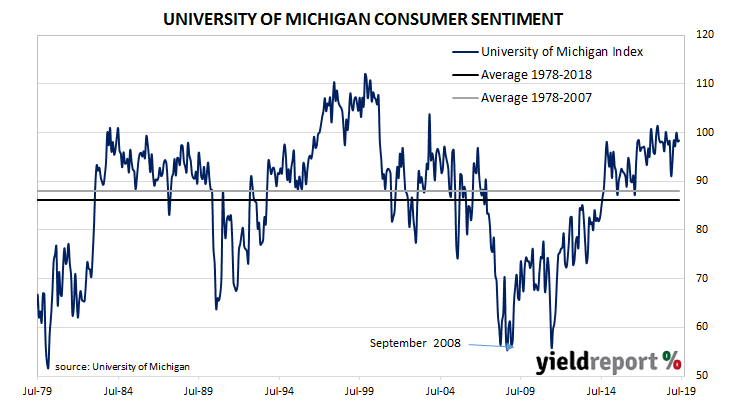US consumer confidence had started 2019 at well above average levels in a longer-term context, although it was markedly lower than the more buoyant readings which typified most of 2018. After rebounding from the falls of January and February, US households have pretty much maintained a historically-high level of confidence.
The latest survey conducted by the University of Michigan indicates the average confidence level of US households remain at an elevated level despite central bank concerns regarding international factors. The University’s preliminary estimate of its Index of Consumer Sentiment moved a little higher from June’s revised figure of 98.2 to 98.4 in July, in line with the market estimate.
The University’s chief economist (Surveys of Consumers), Richard Curtin said one of the components of the index had changed in an interesting fashion. Previous surveys had revealed consumers view higher inflation as a threat to economic growth through rising interest rates and higher unemployment expectations. “Consumers’ views appear to be more consistent with the stagflation thesis, which holds that inflation and unemployment move in the same direction. This thesis is more consistent with how consumers process and organize diverse bits of news about the economy.” He said consumers’ attitudes to inflation are usually based on overall inflation and not wage inflation as per Phillips curve theory.


